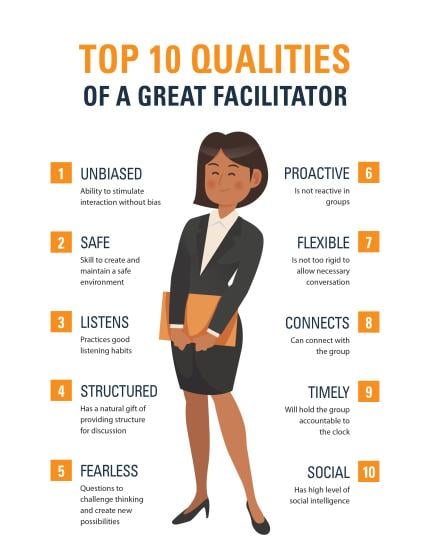When it comes to challenging discussions such as the future of your church, the ideal facilitator is
- pastoral—not necessarily an ordained minister but someone who can shepherd God’s people through a challenging moment with grace, hope, and truth.
- missional—able to help the congregation think beyond themselves to consider their role in the kingdom of God.
- trustworthy—a respected leader with integrity who’s able to carry out the work in a way that honors God and blesses others.
- without a personal agenda—able to walk alongside you in your conversations and discoveries—able to hold back their two cents and resist pushing their preferred outcome.
A Facilitator From Within Your Congregation?
You may think that someone in your own congregation, like your pastor or chair of council might be a suitable facilitator. While it is true that many pastors and chairs of council exhibit these qualities, we strongly recommend that the facilitator come from outside the congregation. Thinking about the viability of a church can meet with a lot of mixed emotions. Also, people from within the congregation have personal biases that cannot help but influence the process. Those emotions and biases are normal and to be expected. However, at times, they can also get in the way of having good and honest conversations. Even if you have in-house candidates who exhibit the qualities of an effective facilitator, that person is still not likely to be the best person to facilitate a Crossroads Discernment at your church.
For that reason, we recommend that you contact Thrive at [email protected] for help to identify and secure a facilitator. Thrive maintains and supports a group of qualified facilitators who can lead this complex, personal, and potentially emotional discussion.
Church Visitors’ Involvement
Church visitors are appointed by the local classis. One of their tasks is “church visiting,” which connects the classis to its local churches and their officebearers through strengthening, care, and accountability. They also help churches understand Church Order, navigate challenging conversations, and advise church leaders. Typically, church visitors are two-person teams—made up of two pastors or one pastor and one elder. While church visitors may take the initiative to contact churches, churches are also encouraged to contact church visitors for advice. The church visitors may be key allies and resources as you discern what’s next.
Conversation Participants
Since these important conversations are about your church and its next steps, all who are connected to the church in a significant way should be present. Defining significance can be tricky. Someone who attends once a month may consider themselves a full, active member and may want to have input, but they might not be familiar with many of the church’s ministries or the people who serve in those ministries. Their perspective might still be helpful, though. Be careful when deciding whom to include and whom to leave out. You’ll want diversity and as many groups as possible to be represented. And to move forward constructively, you’ll want to avoid unnecessary conflict and ill feelings from the get-go.
What’s important is that both the congregation and its leaders are part of the process. This isn’t just about what the leaders think. The church belongs to everyone, and everyone desires and deserves to be heard. The level of participation may vary at different points along the way. Generally, as long as people feel they’ve had a chance to say their piece, and have been heard, they’ll feel good about the process.
Once you’ve confirmed who the facilitator will be, please contact Thrive and let us know who that person will be. This will allow us to continue to support this person.
Worship Resources for the Entire Process
There are a number of worship resources available as you work your way through the Crossroads Discernment Process.
If you find yourself stuck at any point, reach out to Thrive. We’re here to help.
Once you’ve completed this Preparing for the Journey stage, go to the Gathering Your Congregation stage.



